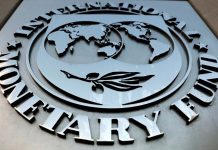🌿 Ruzu Non-Alcoholic Herbal Bitters
Ruzu Non-Alcoholic Herbal Bitters is a natural health supplement specially formulated to:
- ✅ Promote general wellness
- ✅ Detoxify the body
- ✅ Support the treatment of various ailments
Made from a powerful blend of 100% organic and medicinal herbs, Ruzu is completely alcohol-free, making it ideal for:
- 👪 All age groups
- 🌱 Health-conscious individuals
- 🌿 Anyone seeking non-alcoholic herbal remedies
Whether you're looking to boost your vitality, cleanse your system, or support healing the natural way, Ruzu Bitters offers a trusted herbal solution.
The federal government has begun the process of performing a comprehensive asset inventory in order to effectively profile, evaluate, and register all national assets, with a focus on determining the true value of the assets for fiscal planning purposes.
Nigeria now has enormous negative net assets in its 2021 consolidated financial accounts, totaling N39 trillion, a liability that the government hopes to reverse with the implementation of the assets register program. Despite implementing International Public Sector Accounting Standards (IPSAS) accrual accounting on January 1, 2016, numerous historical assets have yet to be recognized, measured, and uploaded.
Accountant-General of the Federation Oluwatoyin Madein stated that the government must take a comprehensive approach to fiscal management, ensuring transparency and accountability in financial reporting.
The AGF stated that the pace of asset rendition by MDAs has been regrettably poor, resulting in a delay that currently jeopardizes the timeliness and correctness of the consolidated financial accounts and has a substantial impact on the nation’s ability to address its net asset imbalance. She asked ministries, departments, and organizations to hasten the return of inherited assets.
“Legacy asset management represents a pivotal tool for strengthening our fiscal position and alleviating our budgetary pressures,” she said, adding that MDAs can unlock substantial value that would otherwise go untapped by systematically cataloguing and valuing legacy assets–long-term resources that are frequently overlooked.
Madein stated that consequences will be imposed on non-compliant MDAs that continue to delay vital renditions. By following the directives, MDAs are expected to make important contributions to the national interest while avoiding fines for noncompliance. The AGF stated that her office will take steps to enforce compliance.
Read Also: FCCPC Commands Ikeja, Eko DisCos to Cease Unistar Meter Installations
The projected excellent legacy asset management will bring numerous benefits. Both Madein and the Ministry of Finance Incorporated (MOFI) stated that the move will aid in identifying potential for improved utilisation or liquidation, producing much-needed cash by assessing the usage and condition of current assets.
MOFI representatives stated that asset enumeration will reduce negative liability while improving asset visibility and valuation.
The explanation is that income from the monetization of underperforming assets can be allocated to debt servicing, reducing the strain on our fiscal budget.
The administration claims that legacy asset rendition would promote a culture of accountability among public officials, ensuring that assets be retained and used in the public good. “By revitalising and effectively managing legacy assets, we can stimulate economic activity and create job opportunities, thereby contributing to national growth,” he said.
Stand-alone GPFS gives a clear and comprehensive perspective of the government’s financial condition, allowing stakeholders to evaluate the entity’s financial health independently.
















